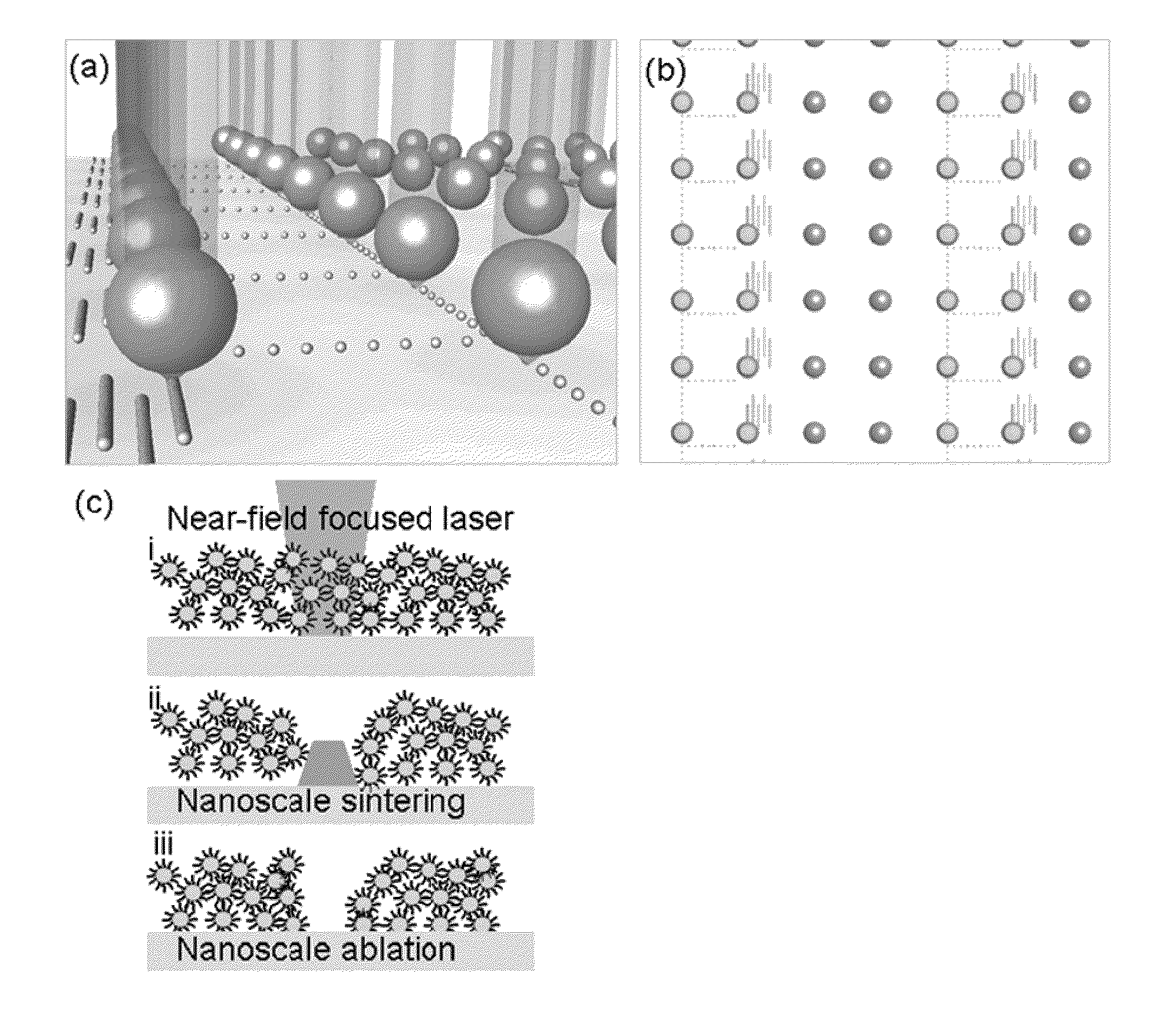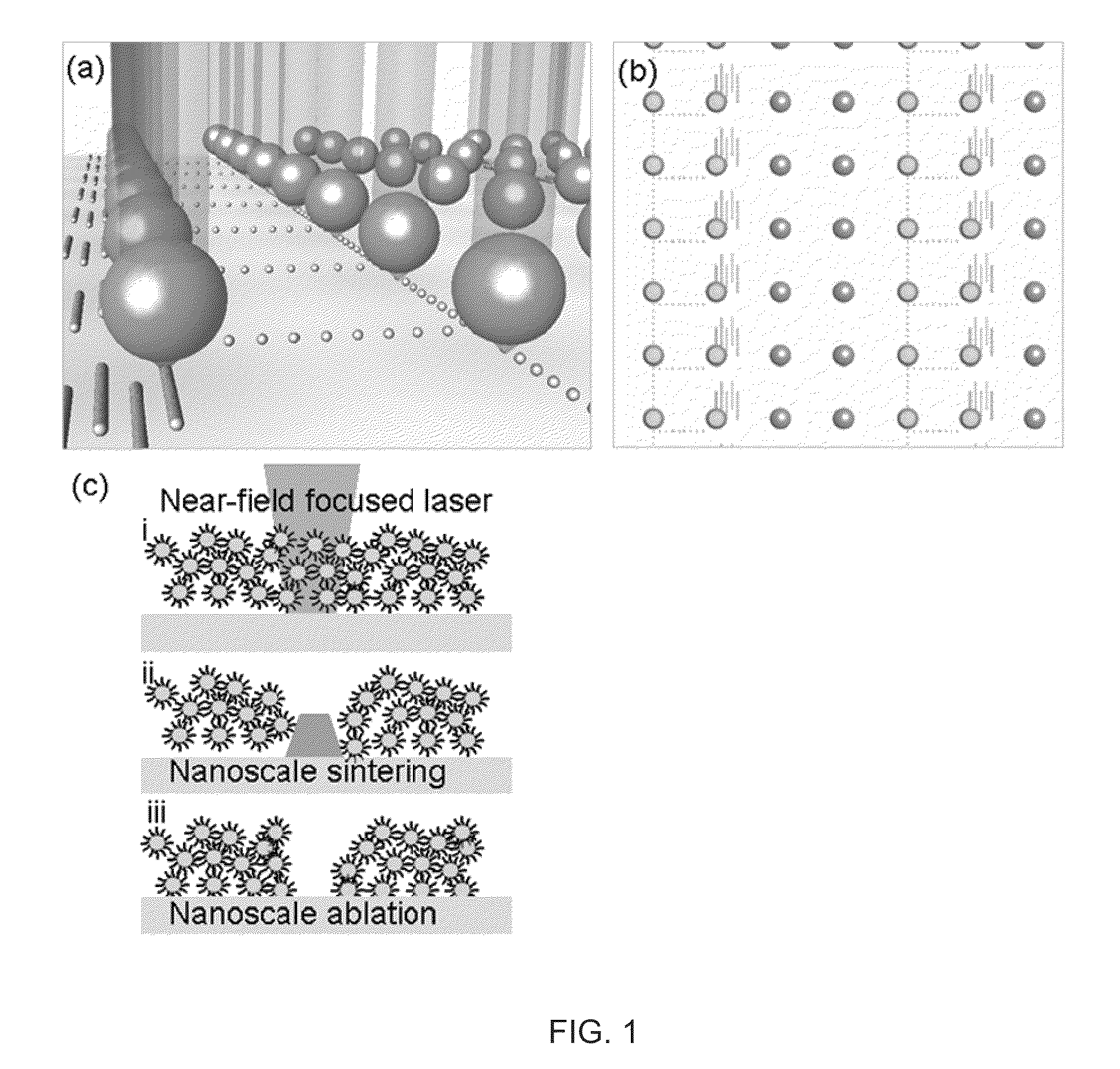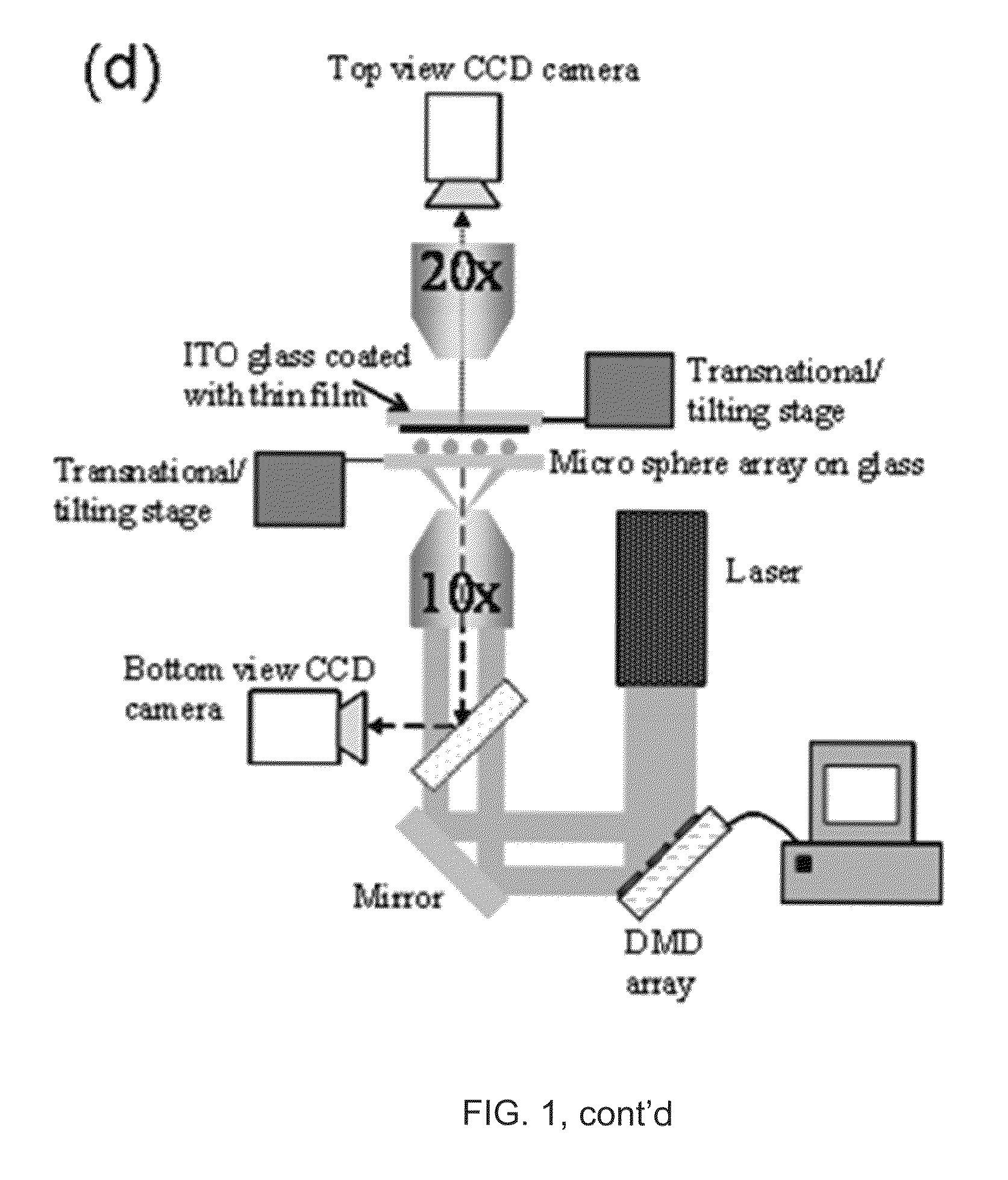Arbitrary pattern direct nanostructure fabrication methods and system
a nanostructure and fabrication method technology, applied in the field of arbitrary pattern direct nanostructure fabrication methods and systems, can solve the problems of limiting the applicable material system, high implementation cost, and limiting production throughput, so as to simplify the manufacturing sequence, reduce the cost, and reduce the cost
- Summary
- Abstract
- Description
- Claims
- Application Information
AI Technical Summary
Benefits of technology
Problems solved by technology
Method used
Image
Examples
Embodiment Construction
[0026]Methods of producing a nanostructure in a target film are provided. The method includes selectively irradiating at least one focusing element of a near-field focusing array that is in near-field focusing relationship with a target film in a manner sufficient to produce a nanostructure from the target film. Also provided are systems for practicing methods of the invention, as well as objects produced thereby.
[0027]Before the present invention is described in greater detail, it is to be understood that this invention is not limited to particular embodiments described, as such may, of course, vary. It is also to be understood that the terminology used herein is for the purpose of describing particular embodiments only, and is not intended to be limiting, since the scope of the present invention will be limited only by the appended claims.
[0028]Where a range of values is provided, it is understood that each intervening value, to the tenth of the unit of the lower limit unless the ...
PUM
| Property | Measurement | Unit |
|---|---|---|
| width | aaaaa | aaaaa |
| size | aaaaa | aaaaa |
| thickness | aaaaa | aaaaa |
Abstract
Description
Claims
Application Information
 Login to View More
Login to View More - R&D
- Intellectual Property
- Life Sciences
- Materials
- Tech Scout
- Unparalleled Data Quality
- Higher Quality Content
- 60% Fewer Hallucinations
Browse by: Latest US Patents, China's latest patents, Technical Efficacy Thesaurus, Application Domain, Technology Topic, Popular Technical Reports.
© 2025 PatSnap. All rights reserved.Legal|Privacy policy|Modern Slavery Act Transparency Statement|Sitemap|About US| Contact US: help@patsnap.com



